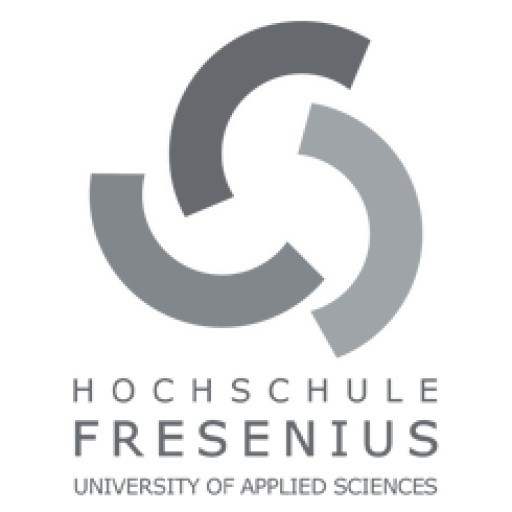Photos of university / #ucl
Drug Design at University College London offers an interdisciplinary programme that combines principles of chemistry, biology, pharmacology, and computational science to develop new therapeutic agents. This innovative course provides students with a comprehensive understanding of the drug discovery process, from target identification and validation to lead compound optimization and preclinical development. Students will explore advanced topics such as molecular modeling, structure-based drug design, pharmacokinetics, and medicinal chemistry, equipping them with practical skills to contribute to the development of novel medicines. The programme emphasizes the integration of theoretical knowledge with hands-on laboratory experience, enabling students to apply computational techniques and experimental methods to real-world challenges in drug development. Throughout the course, students will engage in project work and collaborations with industry partners, providing valuable insights into current trends and future directions in pharmaceutical research. The programme also focuses on the ethical, regulatory, and commercial aspects of drug design, preparing graduates for careers in academia, biotechnology, pharmaceuticals, or regulatory agencies. With access to world-class facilities and expert faculty, students will be at the forefront of scientific innovation, gaining the expertise needed to make meaningful contributions to healthcare and medicine. Upon completion, graduates will possess a strong foundation in both the scientific and managerial aspects of drug development, enabling them to pursue further research or enter the pharmaceutical industry with confidence. The programme’s multidisciplinary approach ensures that students are well-equipped to tackle complex biological problems through creative and scientific solutions, ultimately advancing the field of drug discovery and improving patient outcomes worldwide.
This programme teaches students the latest methodologies and approaches and covers all aspects of drug design: drug discovery, computational and structural biology, screening, assay development, medicinal chemistry, and most importantly the industrial practices involved in modern drug design technology.
Students undertake modules to the value of 180 credits.
The programme consists of two core modules (30 credits), three optional modules (45 credits) and a dissertation/report (105 credits).
Optional modules
Students will select three from the following Drug Design MSc modules:
- Bioinformatics and Structural Biology as applied to Drug Design
- Biological Molecules as Therapeutics
- Biophysical Screening Methods, X-ray Crystallography, Protein NMR and Phenotypic Screening
- Cheminformatics and Modelling for Drug Design
- Fragment-based Drug Design
- Target Selection – Commercial and Intellectual Property Aspects
- Target Selection – Scientific Grounds
- Core modules
- Plus two taught transferable skills modules delivered by CALT (UCL Centre for the Advancement of Learning and Teaching):
- Investigating Research
- Researcher Professional Development
Optional modules
There are no optional modules for this programme.
Dissertation/report
All students undertake an independent research project which culminates in a dissertation of 15,000 to 20,000 words.\
Teaching and learning
The programme is delivered through a combination of lectures, seminars, tutorials and problem classes, critical journal clubs and a research project. Assessment is through coursework, practicals, laboratory work, examination, dissertation and oral presentation.
An upper second-class UK Bachelor’s degree in a relevant subject (for example, life sciences, medicine, chemistry) or an overseas qualification of an equivalent standard, or an appropriate professional qualification, or a minimum of three years’ relevant work experience.
Two bursaries of £2500 are available for Home/Eu students to reduce tuition fees.
The MSc in Drug Design at University College London (UCL) offers an advanced and comprehensive curriculum that combines principles from medicinal chemistry, pharmacology, biochemistry, and molecular biology to equip students with the skills necessary to develop new therapeutic agents. The program is designed for students aiming to pursue careers in pharmaceutical industries, biotechnology sectors, or academic research focusing on drug discovery and development. Students will gain detailed knowledge of the drug discovery process, including target identification, hit discovery, lead optimization, and preclinical evaluation. The coursework covers modern techniques such as structure-based drug design, virtual screening, cheminformatics, and pharmacokinetics, providing a multidisciplinary approach to understanding how potential drugs interact with biological systems.
The program also emphasizes practical laboratory skills through hands-on experiments and computational techniques, preparing students for real-world challenges in drug development. Additionally, students will have access to cutting-edge facilities and resources at UCL’s laboratories. The course typically involves a research project, allowing students to work on real-world problems under supervision, and often collaborating with industry partners or academic institutions. Teaching is delivered by leading experts in the field, offering students insights into current research and future trends in drug design. The program also fosters critical thinking, problem-solving skills, and teamwork through group projects and seminars.
Graduates of the MSc in Drug Design will be well-positioned for career opportunities in pharmaceutical companies, biotech startups, research institutes, and regulatory agencies. The program also provides a solid foundation for those wishing to pursue further research, such as a PhD. UCL’s strong links with industry and research organizations facilitate networking and internship opportunities, enhancing employment prospects post-completion. The program’s interdisciplinary nature and emphasis on innovative approaches in drug design make it a highly attractive choice for students interested in biomedical innovation and improving healthcare through new therapeutics.









